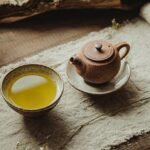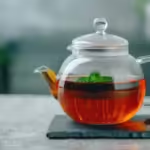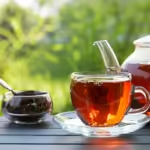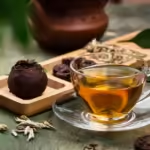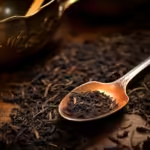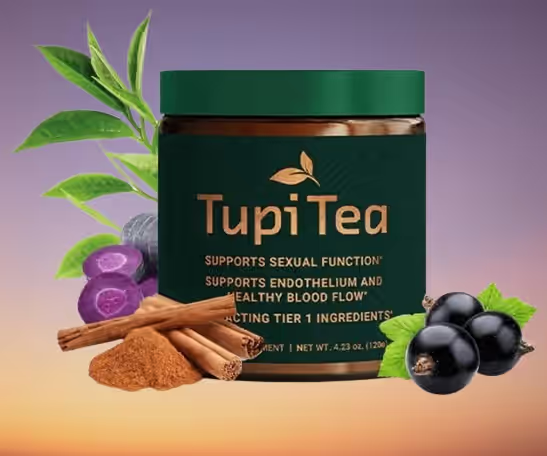Table of Contents
Hibiscus tea has gained immense popularity over the years, not only for its vibrant color and delightful flavor but also for its numerous health benefits. However, as with any herbal remedy, it’s essential to understand the potential side effects that may accompany its consumption. This article will explore the hibiscus tea side effects, delve into the benefits of hibiscus tea, and provide guidance on how to prepare hibiscus tea effectively.
What is Hibiscus Tea?
Hibiscus tea is an herbal tea made from the dried calyxes of the hibiscus flower (Hibiscus sabdariffa). Known for its tart flavor, similar to cranberry, hibiscus tea is often enjoyed both hot and cold. It is rich in antioxidants, vitamins, and minerals, making it a popular choice among health enthusiasts.
Nutritional Profile of Hibiscus Tea
Hibiscus tea is low in calories and is packed with essential nutrients. It contains:
- Vitamin C: Boosts the immune system.
- Antioxidants: Help combat oxidative stress.
- Polyphenols: May reduce inflammation and improve heart health.
Benefits of Hibiscus Tea

Before discussing the hibiscus tea side effects, it is crucial to acknowledge the numerous benefits it offers. Here are some of the key advantages of incorporating hibiscus tea into your diet:
1. Blood Pressure Regulation
One of the most significant benefits of hibiscus tea is its potential to lower blood pressure. Several studies have shown that hibiscus tea can be effective in reducing both systolic and diastolic blood pressure in individuals with hypertension.
2. Rich in Antioxidants
Hibiscus tea is loaded with antioxidants, which help protect the body from oxidative damage caused by free radicals. This can reduce the risk of chronic diseases and promote overall health.
3. Supports Weight Loss
Drinking hibiscus tea may aid in weight management. Some research suggests that hibiscus extract can inhibit the production of amylase, an enzyme that breaks down carbohydrates, thus helping to reduce calorie absorption.
4. Improves Liver Health
Hibiscus tea has been linked to improved liver health. Studies indicate that it may help reduce liver fat and improve liver function, making it beneficial for those with fatty liver disease.
5. Antimicrobial Properties
The tea possesses antimicrobial properties that can help fight off harmful bacteria and viruses, making it a valuable addition to your health regimen.
6. Aids Digestion
Hibiscus tea can promote digestion and relieve constipation due to its mild laxative effect. It may also help balance the digestive system.
7. Promotes Healthy Skin
The antioxidants in hibiscus tea can help improve skin health by reducing signs of aging and promoting a radiant complexion.
Hibiscus Tea Side Effects
Despite its many health benefits, hibiscus tea may have side effects that consumers should be aware of. Here are some of the potential hibiscus tea side effects to consider:
1. Lower Blood Pressure
While hibiscus tea is known to lower blood pressure, this effect may be too pronounced for some individuals, particularly those already taking antihypertensive medications. If you have low blood pressure, it’s advisable to consult with a healthcare professional before consuming hibiscus tea regularly.
2. Allergic Reactions
Some individuals may be allergic to hibiscus. Symptoms can include skin rashes, itching, or breathing difficulties. If you experience any adverse reactions, discontinue use immediately and seek medical attention.
3. Interaction with Medications
Hibiscus tea can interact with certain medications, including those for diabetes and hypertension. It may enhance the effects of these medications, leading to unwanted side effects. Always consult your doctor before adding hibiscus tea to your routine, especially if you are on medication.
4. Stomach Upset
Some individuals may experience digestive issues after consuming hibiscus tea, including stomach cramps or diarrhea. If you have a sensitive stomach, consider starting with small amounts and gradually increasing your intake.
5. Pregnancy and Breastfeeding Concerns
Hibiscus tea is generally not recommended for pregnant or breastfeeding women, as it may have uterine-stimulating effects. If you are pregnant or nursing, consult with a healthcare professional before consuming hibiscus tea.
6. Effects on Blood Sugar Levels
While hibiscus tea may help lower blood sugar levels, this can be a concern for individuals with diabetes. Regular monitoring of blood sugar levels is essential, and consulting with a healthcare provider is advisable.
7. Potential Liver Effects
Although hibiscus tea can benefit liver health, excessive consumption may lead to liver complications in some individuals. Moderation is key, and individuals with liver issues should consult a healthcare professional before consuming hibiscus tea regularly.
How to Prepare Hibiscus Tea

Preparing hibiscus tea is a simple and enjoyable process. Here’s a quick guide on how to prepare hibiscus tea:
Ingredients
- 1 cup dried hibiscus flowers
- 4 cups of water
- Sweetener (honey, sugar, or stevia) to taste (optional)
- Lemon or lime slices (optional)
Instructions
- Boil Water: In a pot, bring 4 cups of water to a boil.
- Add Hibiscus Flowers: Once the water is boiling, add the dried hibiscus flowers to the pot.
- Steep: Reduce the heat and let the mixture steep for about 15-20 minutes. The longer you steep, the stronger the flavor will be.
- Strain: Remove from heat and strain the tea into a pitcher or cups using a fine mesh strainer to remove the hibiscus flowers.
- Sweeten: Add sweetener to taste, if desired, and stir well.
- Serve: Enjoy your hibiscus tea hot, or let it cool and serve it over ice for a refreshing iced tea. Garnish with lemon or lime slices if desired.
Conclusion
Hibiscus tea is a delightful and healthful beverage that offers a range of benefits, from regulating blood pressure to promoting healthy skin. However, it is crucial to be aware of the hibiscus tea side effects, especially if you have existing health conditions or are taking medications. By understanding these potential side effects and preparing the tea correctly, you can enjoy hibiscus tea safely and reap its numerous health benefits.



